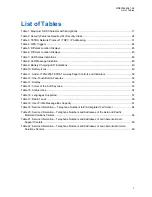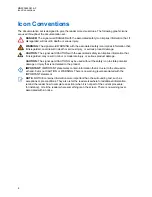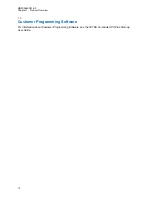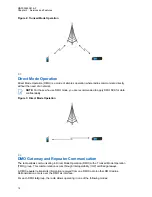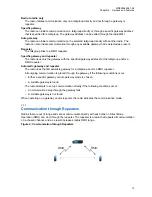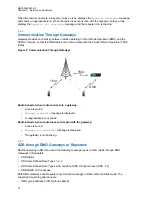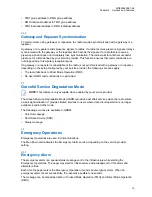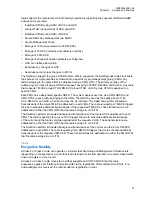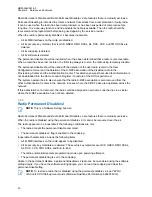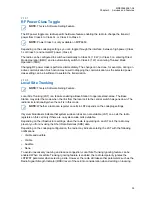
The radio chains multiple predefined templates with the same Prompt ID into a single multifield
template. The Predefined menu can store predefined and multifield templates. There is no indication to
distinguish between the two, although an alternative solution is to define the template name which is
displayed as the title of the template. However, this solution is subject to user configuration.
2.7.6
SDS Air Interface Aspects
The types of delivery reports available are standard report and short form report. The radio can be
provisioned to send a short-form SDS - TL receive report when the originator of the message allows
short-form report. The short form report uses a specially designated 16-bit SDS status value instead
of SDS-REPORT. The radio can respond to a delivery response request automatically or manually
although selection of report types through radio MMI is available only in manual response.
The radio supports SwMIs that employ store and forward service as indicated in the cell broadcast
information. The radio supports use of a service center, which address is set in the radio. The store
and forward operation is supported. However, the radio notifies you only on successful sending of the
message. The radio does not wait for the report from the service center.
Downlink SDS messages types 1, 2, and 3 are always routed to the PEI when an AT application is
registered. If no external application is registered, the message is discarded.
NOTE:
The DMO SDS does not support type 1, 2, and 3 user-defined short messages.
2.7.7
SDS Encryption
Short data messages stored in a radio are protected against any unauthorized access. The stored data
includes messages in the
Inbox
,
Outbox
, and stored call out messages.
The required protection against any unauthorized access through the MMI, PEI, or unintentional
access by other means is carried out through the special mechanisms. The encryption of stored
messages preventing from accessing the memory directly and the user authentication, protect SDS
messages. Protected messages cannot be read on the radio MMI unless valid authentication occurs.
For the user authentication, the existing radio PIN is used.
SDS messages received by the radio are encrypted before being stored in the Inbox. Store and
Forward messages are encrypted before being saved in the
Outbox
.
Received call out messages are encrypted before being stored in the
CO Box
.
If the feature is enabled, then the radio prompts you to enter the PIN if any of the following menu items
are selected from the MMI.
•
Messages
→
Inbox
.
•
Messages
→
Outbox
.
•
Messages
→
CO Box
.
Following successful PIN entry and access to the required messages, the radio does not require
further PIN entries to access messages unless one of the following conditions has been met.
• Exiting from the radio menu.
• Turning off the radio.
• Changing the PIN from the MMI.
If you disable the PIN lock through the MMI or change the PIN, the protected messages are deleted.
Before deleting the messages, you are prompted to ensure that the operation should proceed. If the
PIN lock is changed through the PEI, all the protected messages stored in the
Inbox
,
Outbox
, and
CO
MN003465A01-AF
Chapter 2 : Services and Features
20


